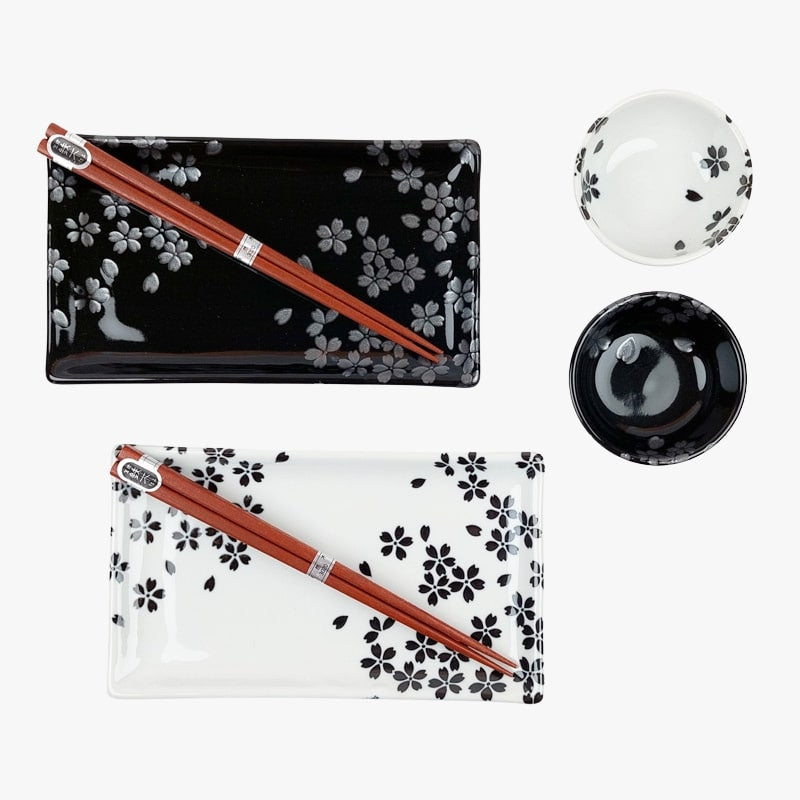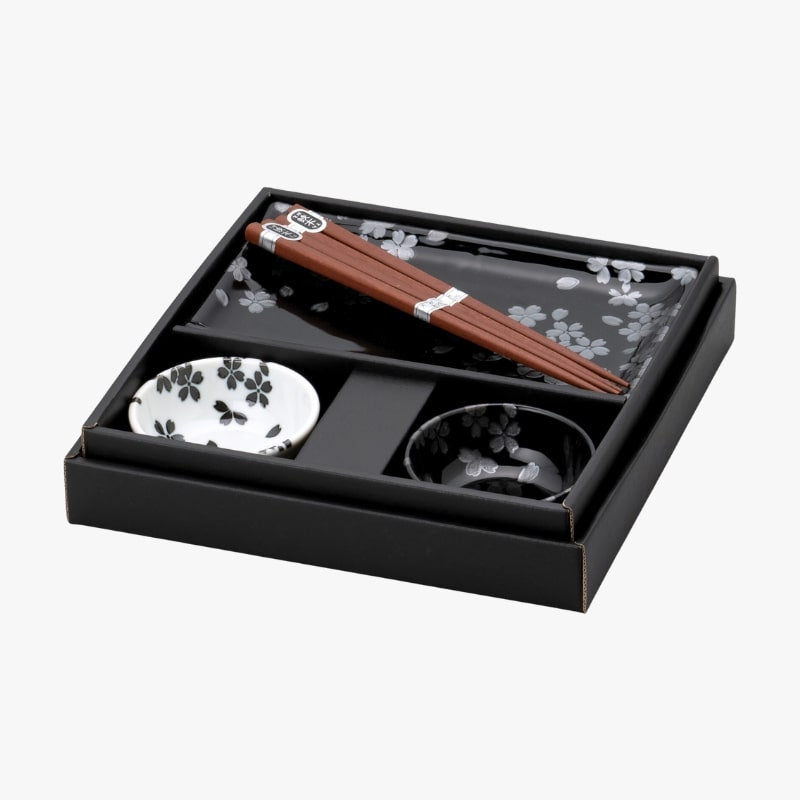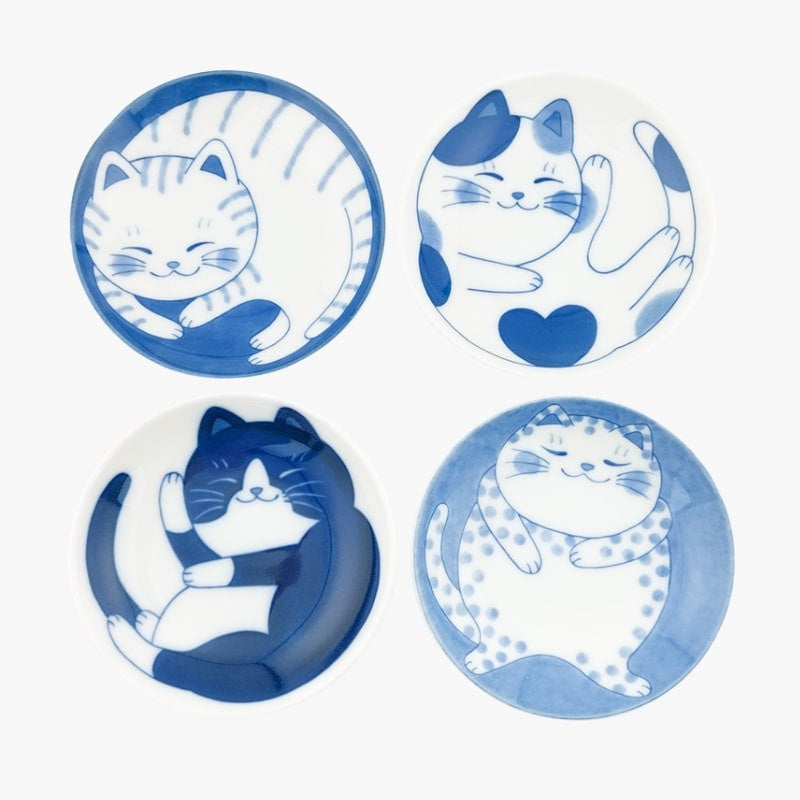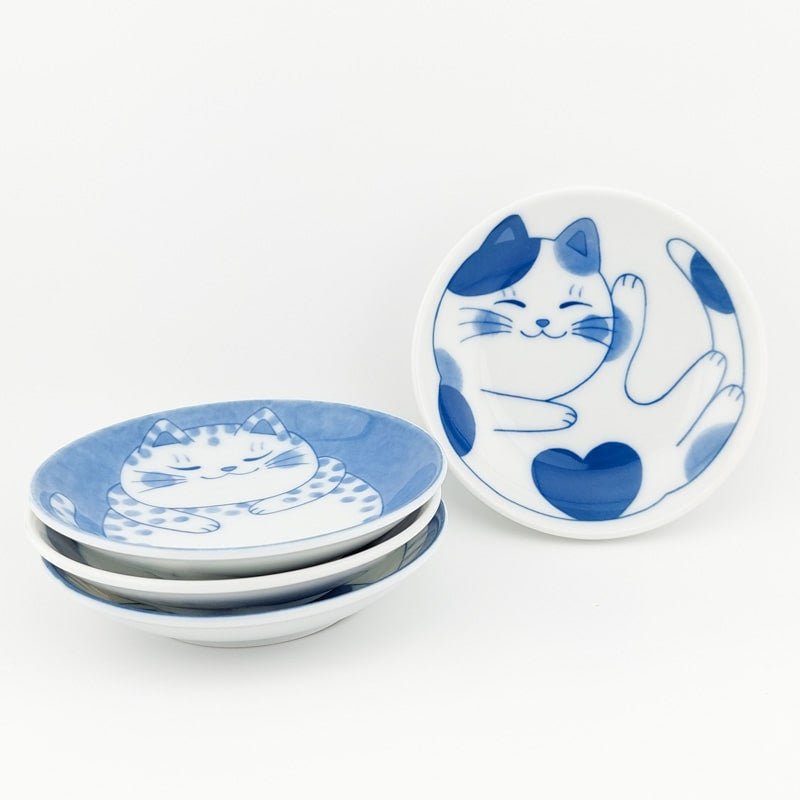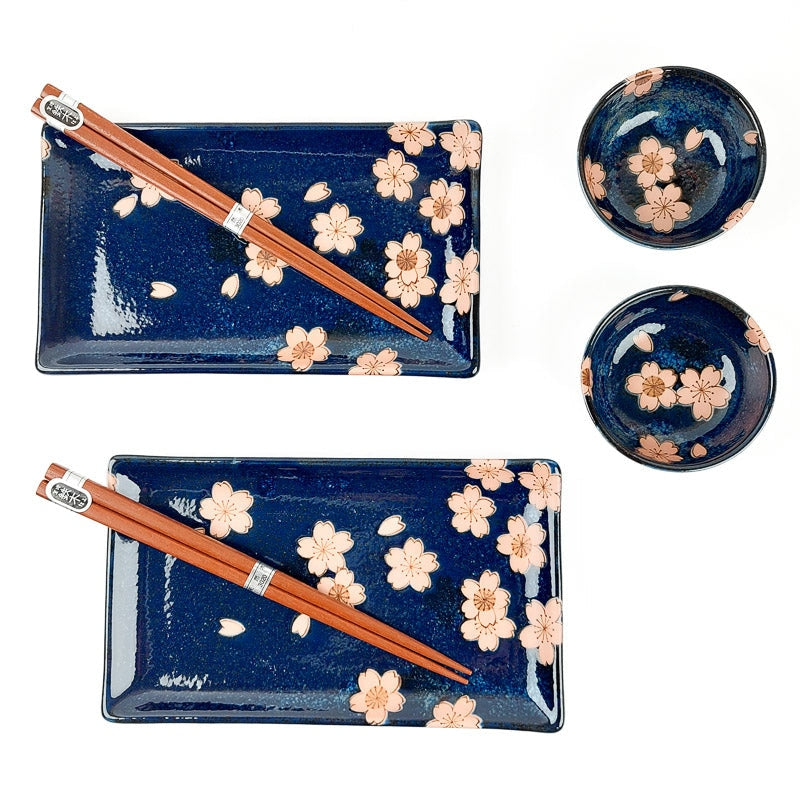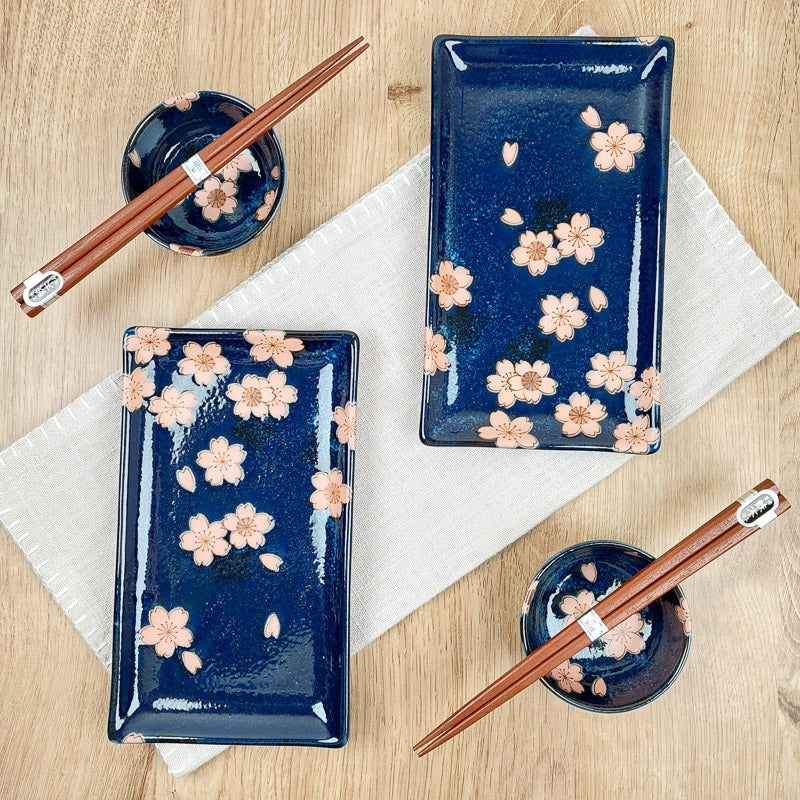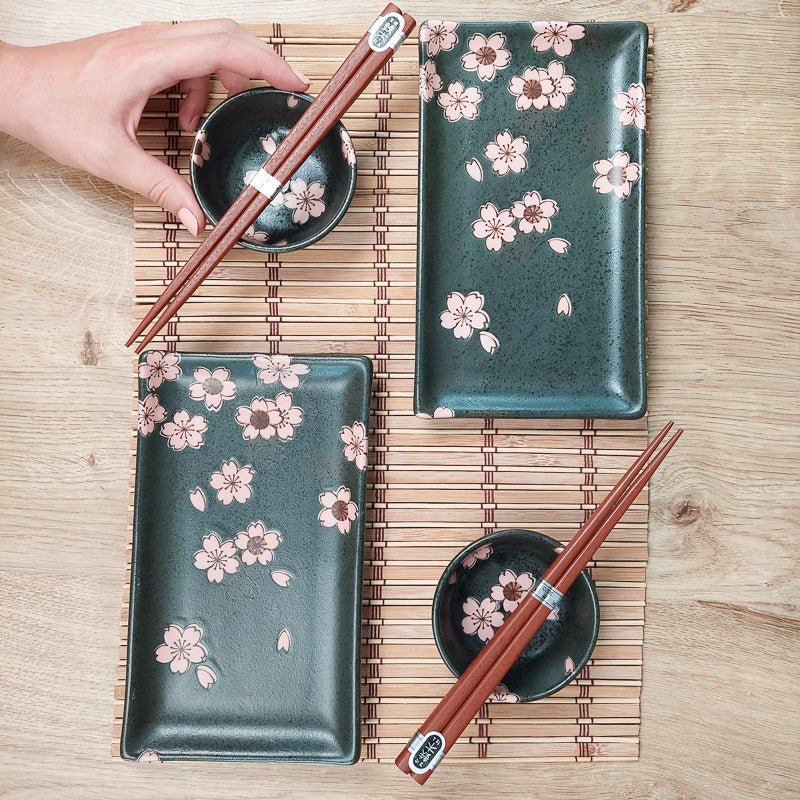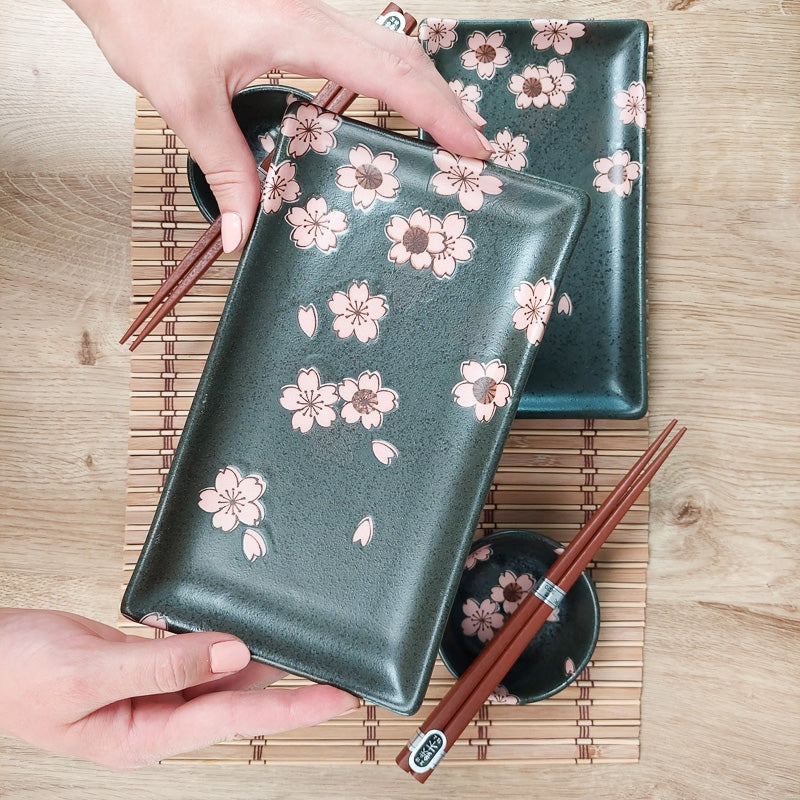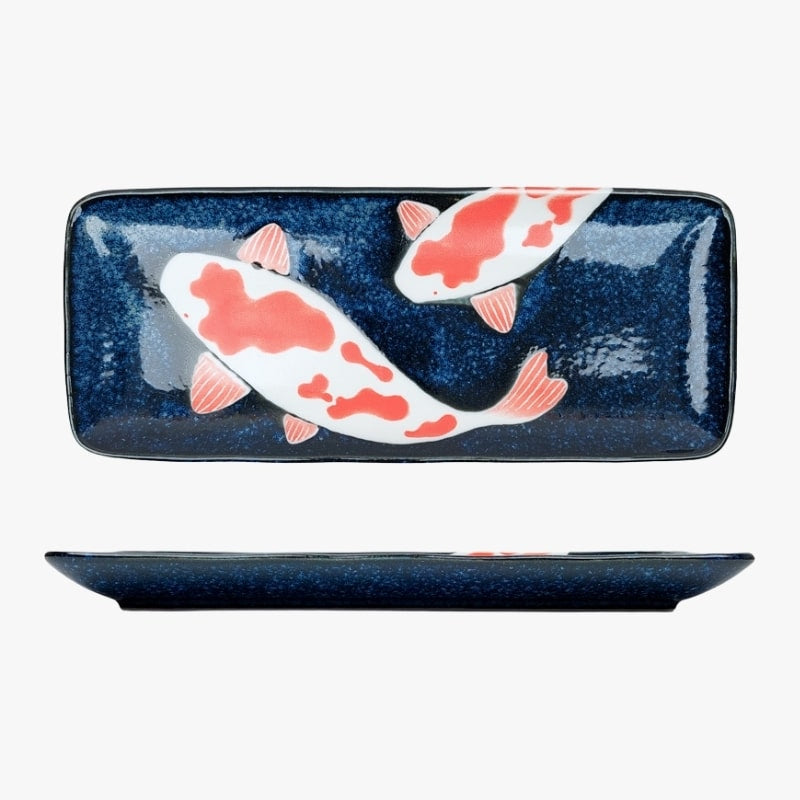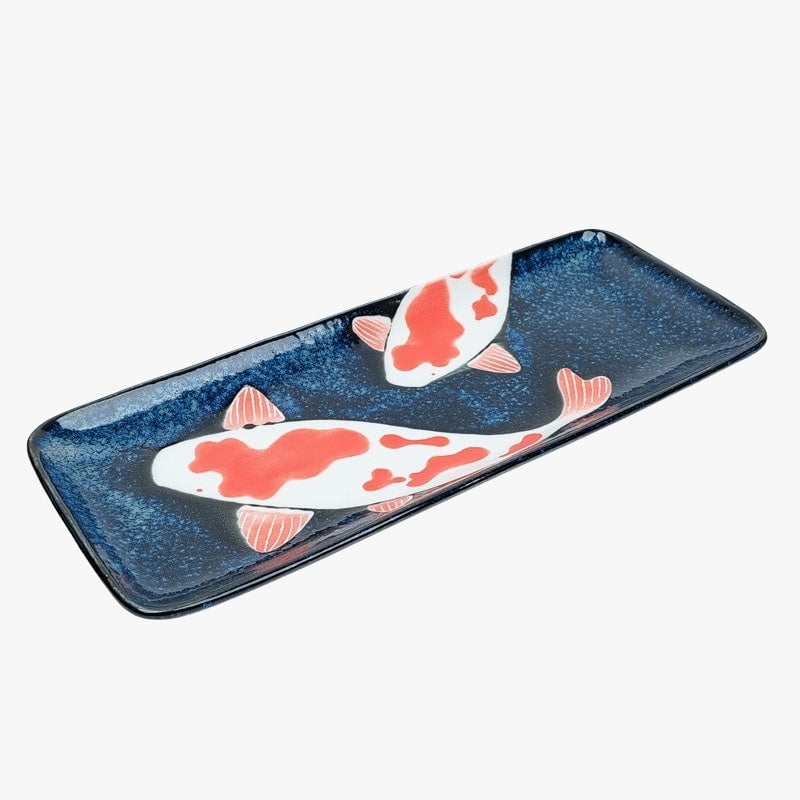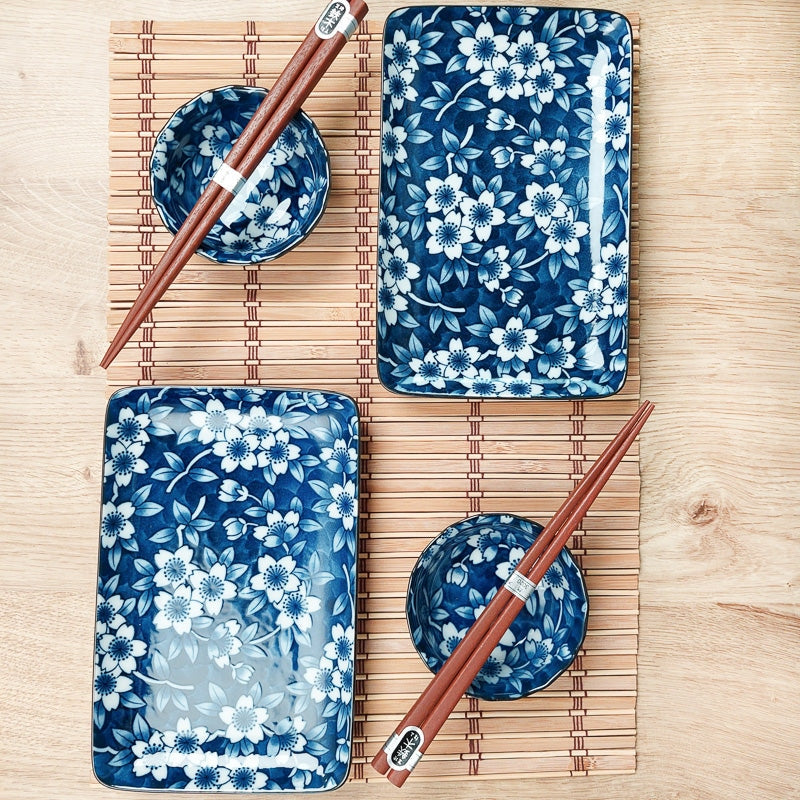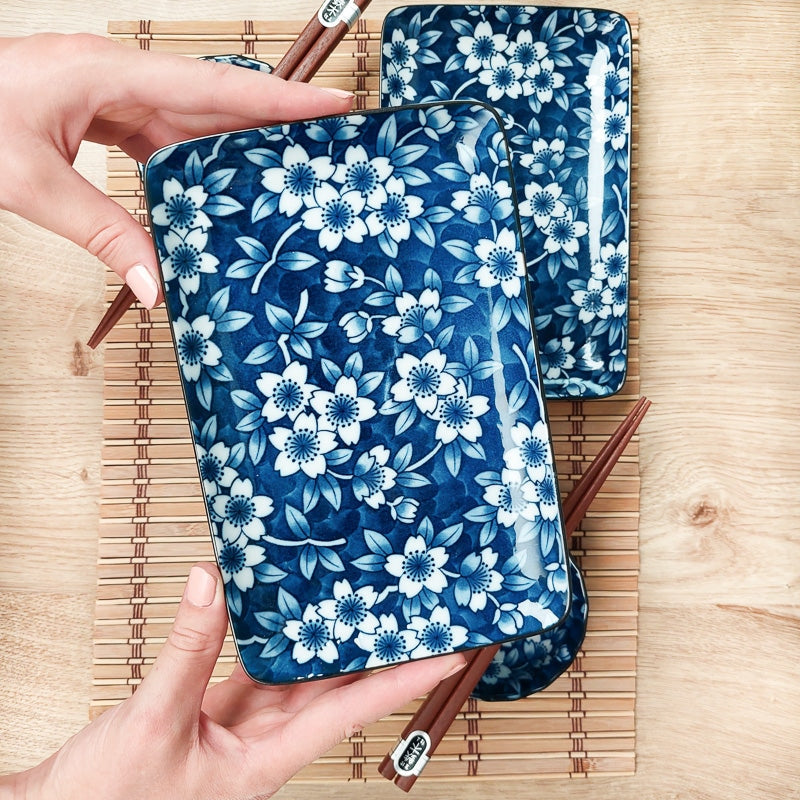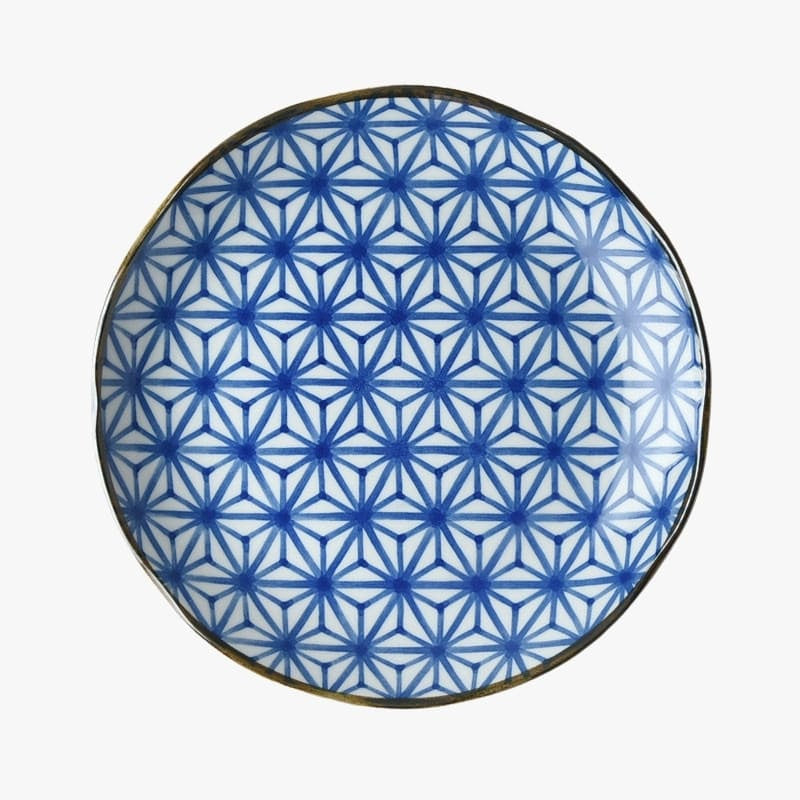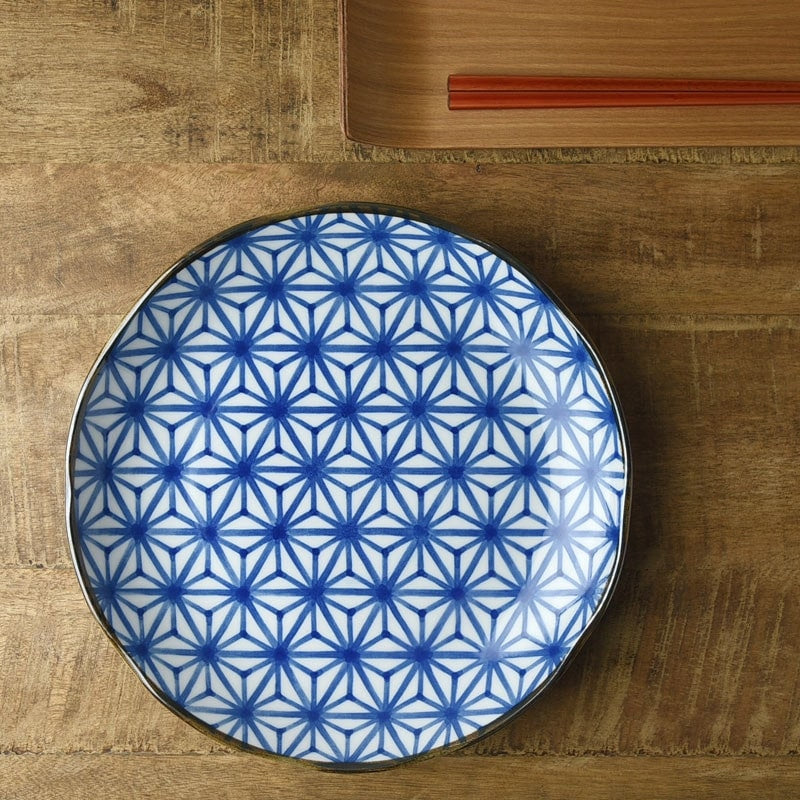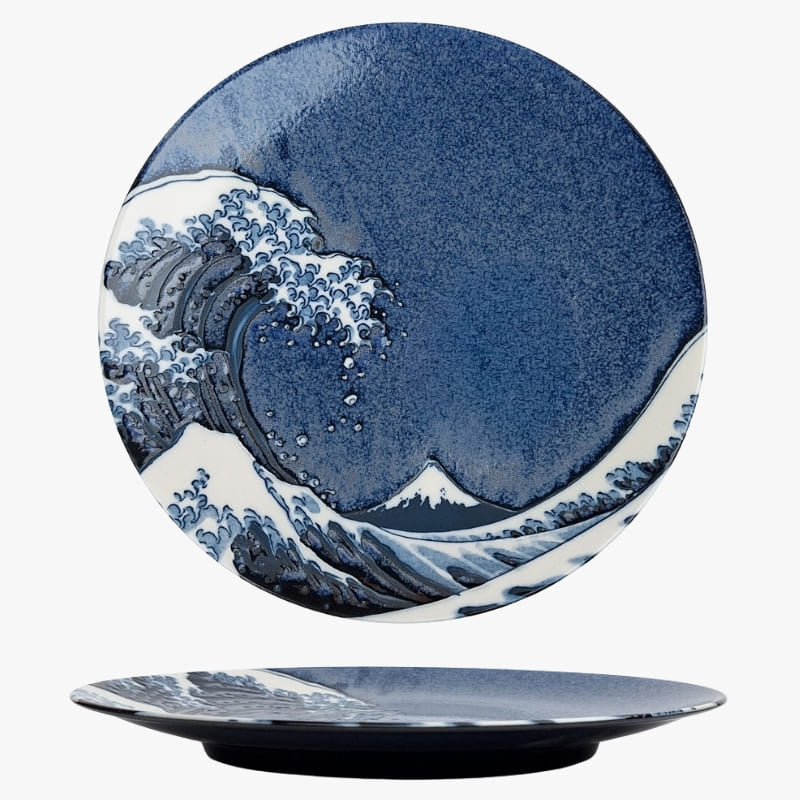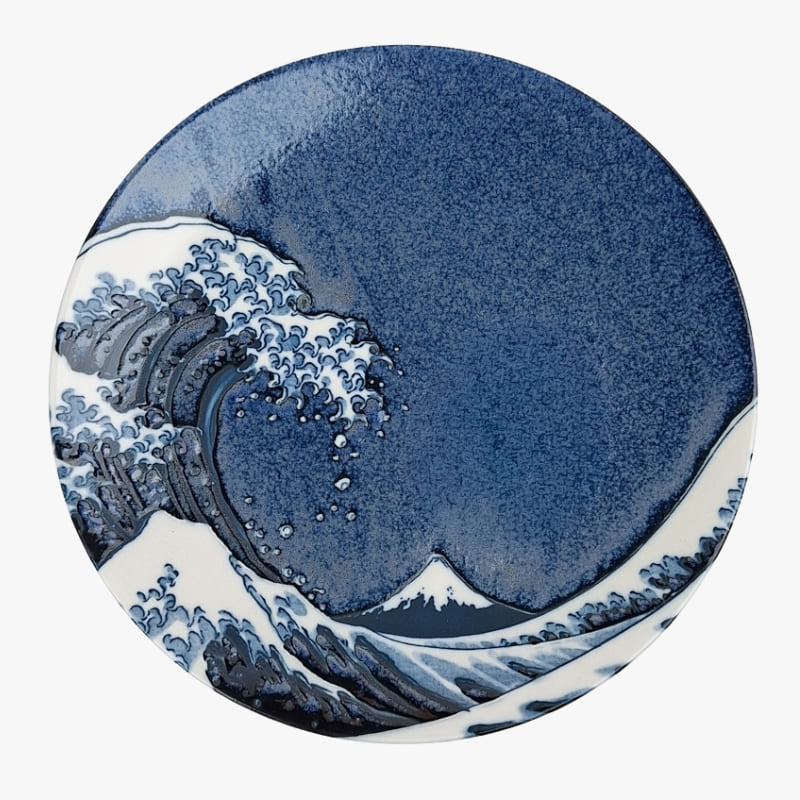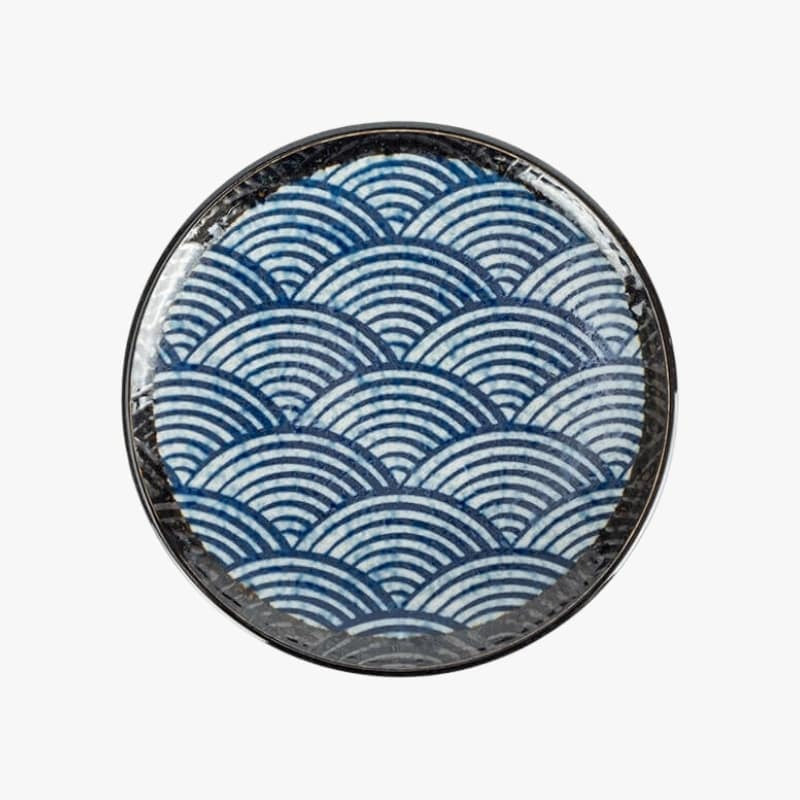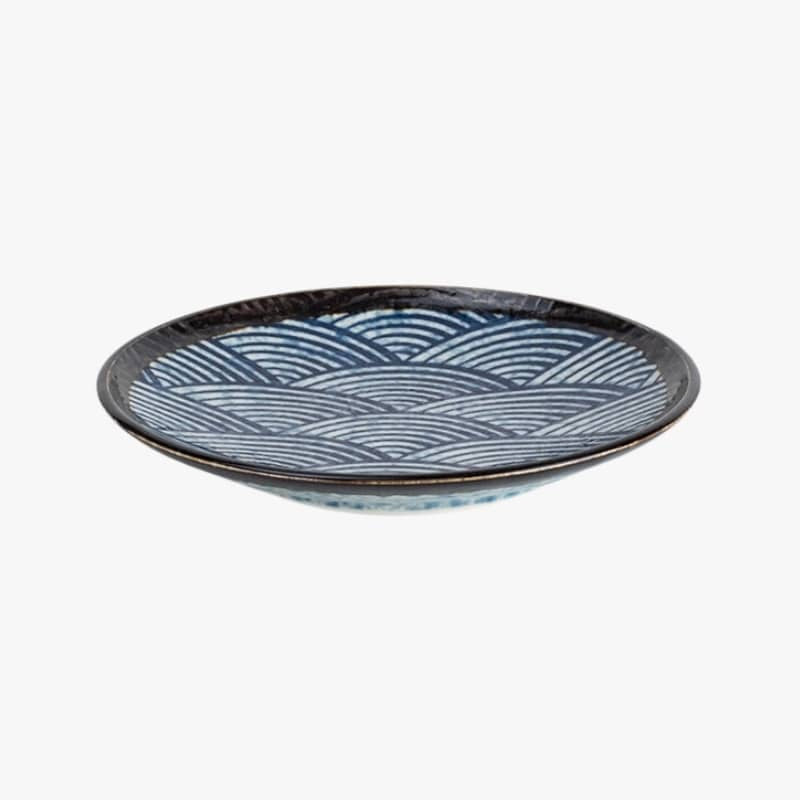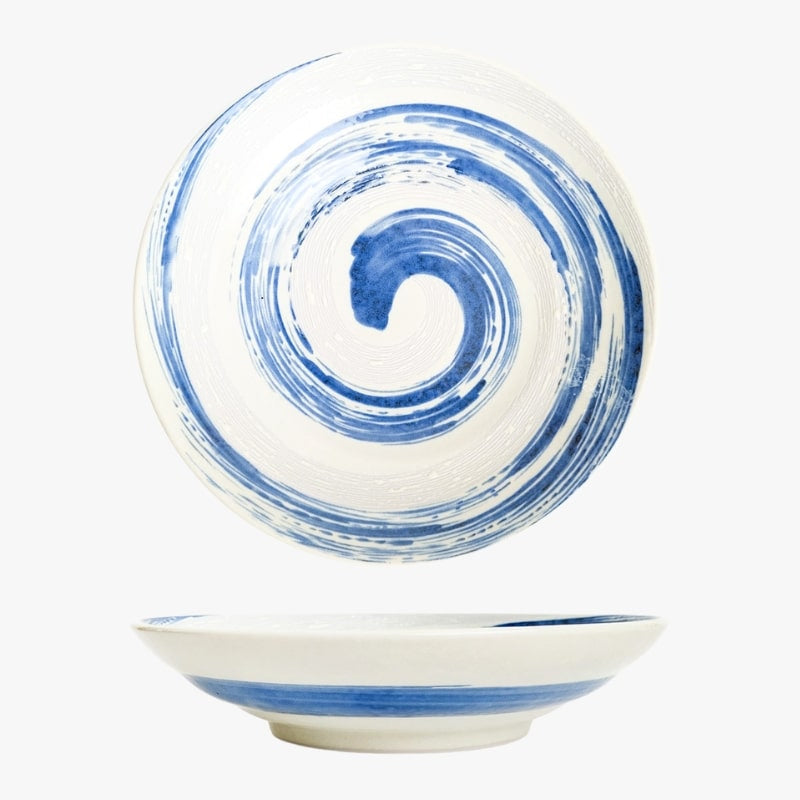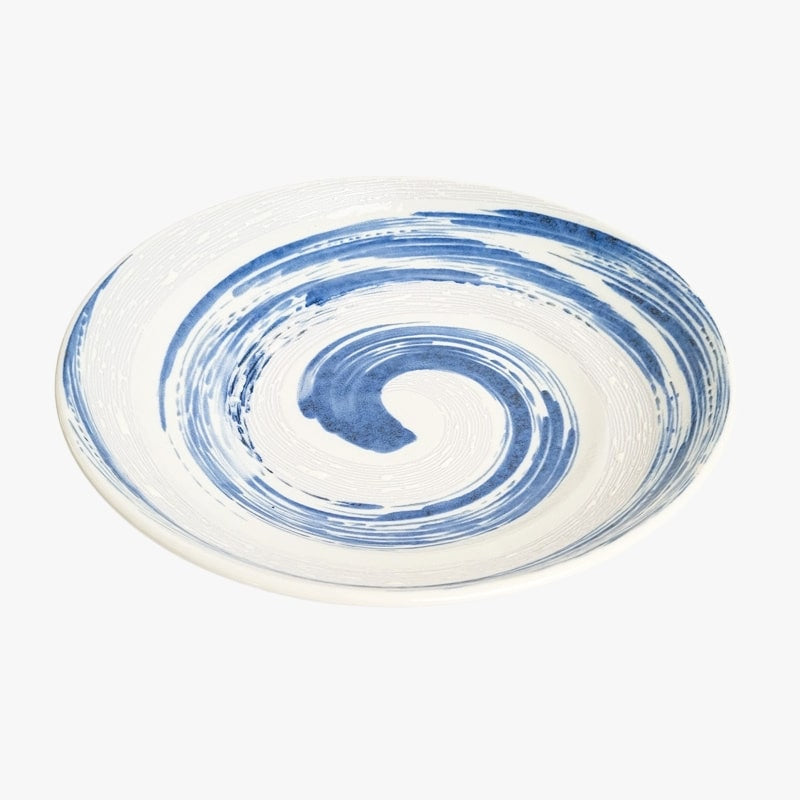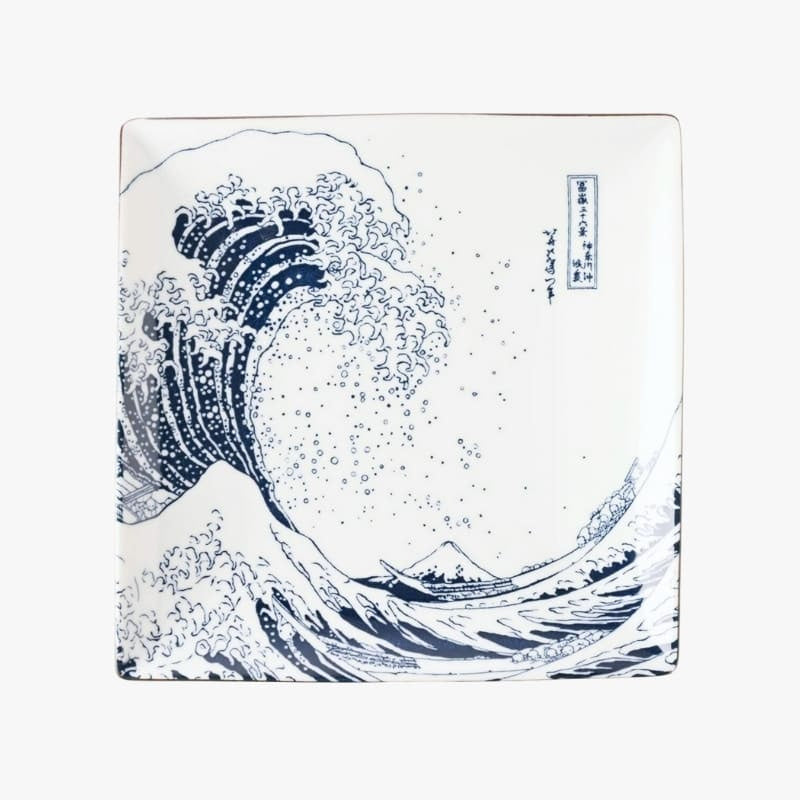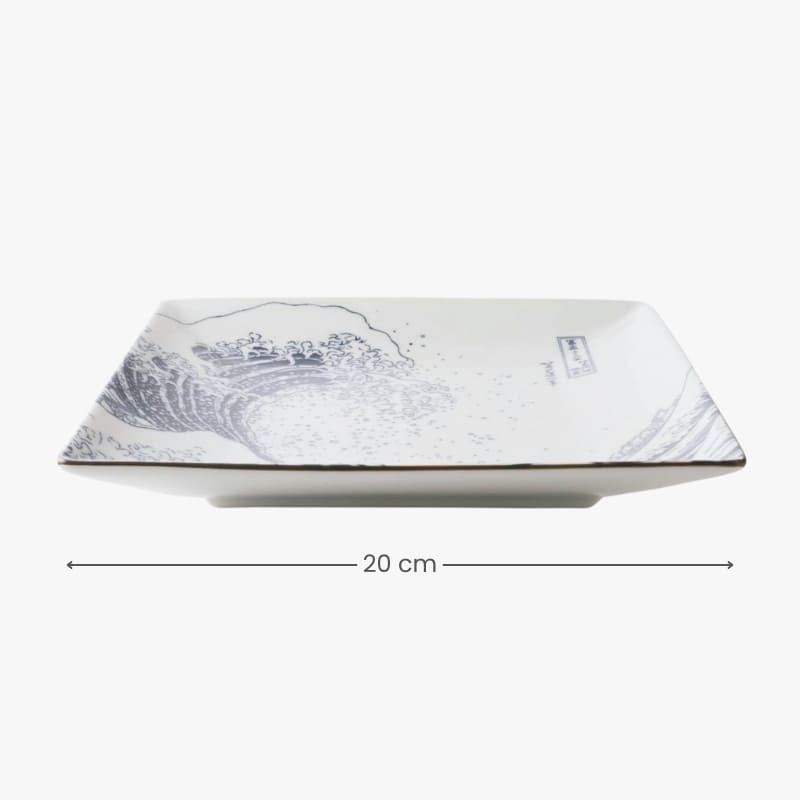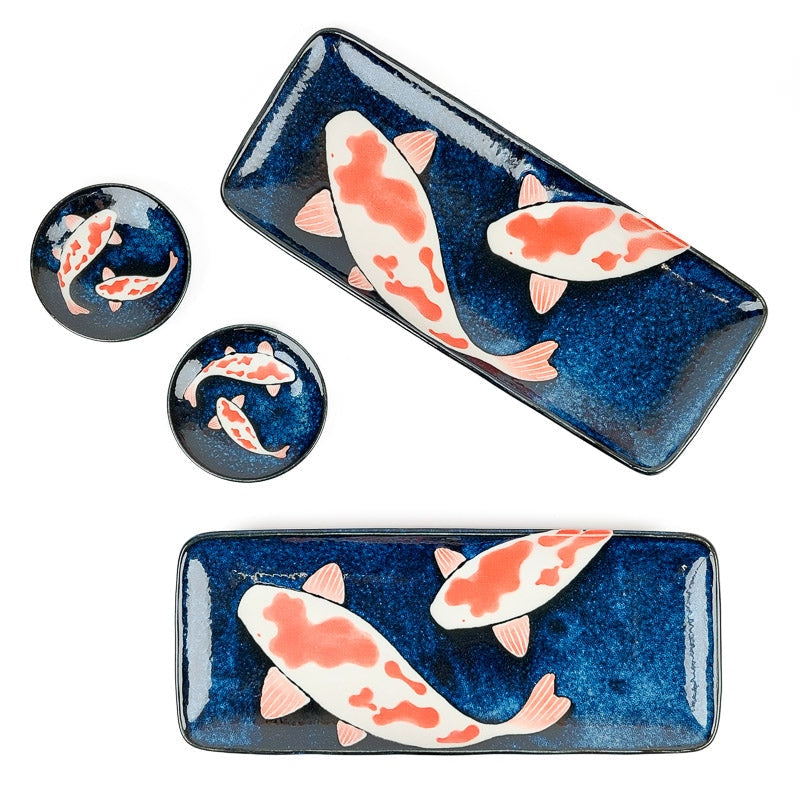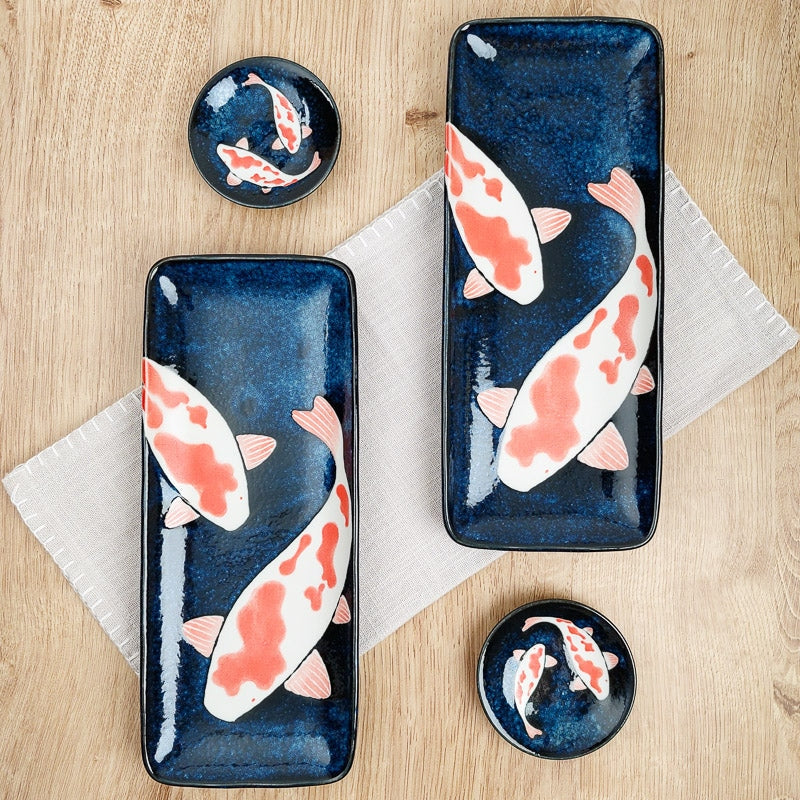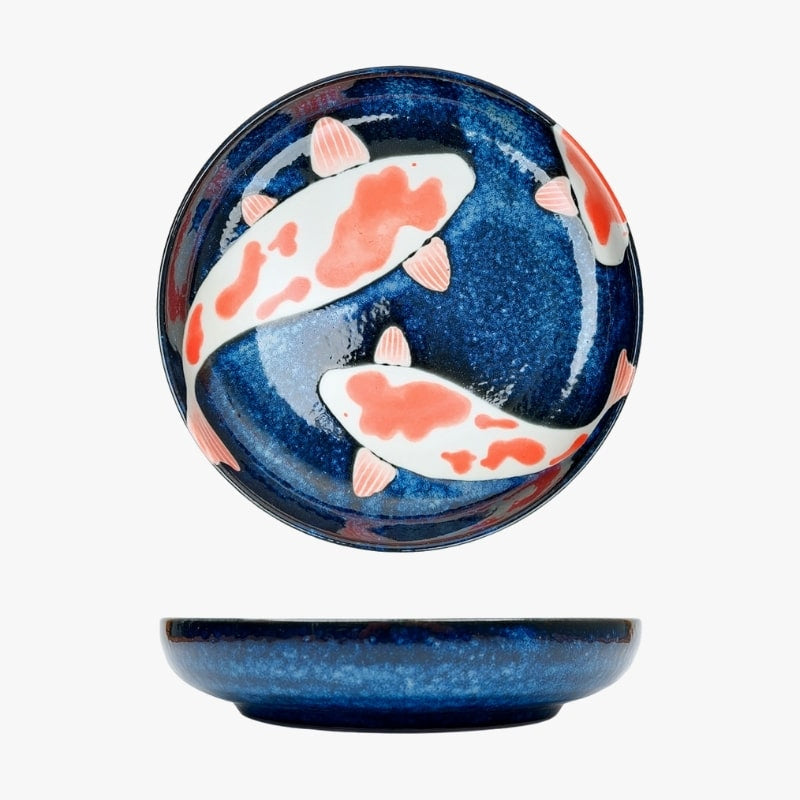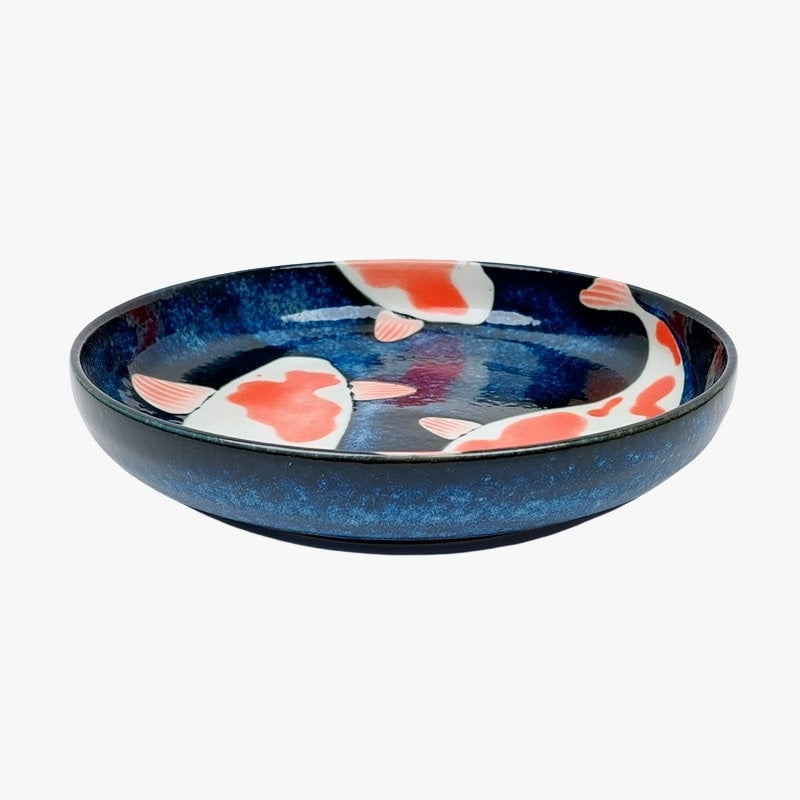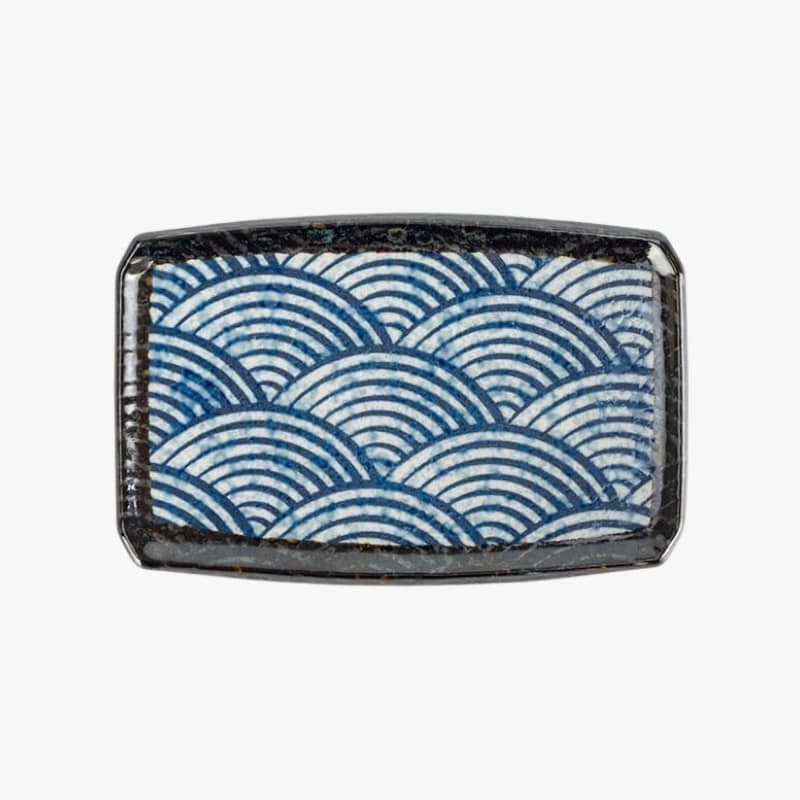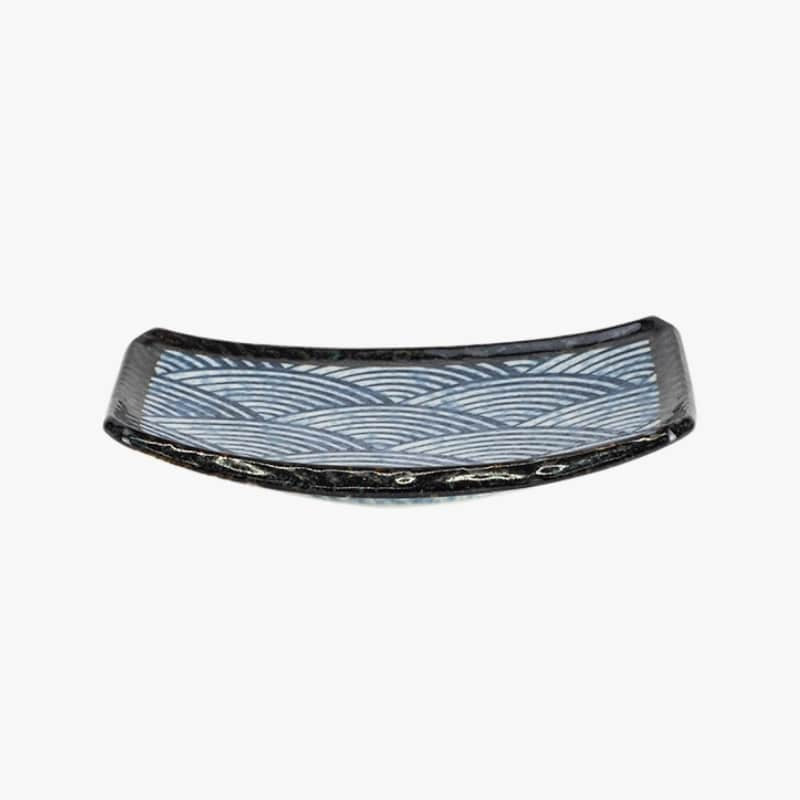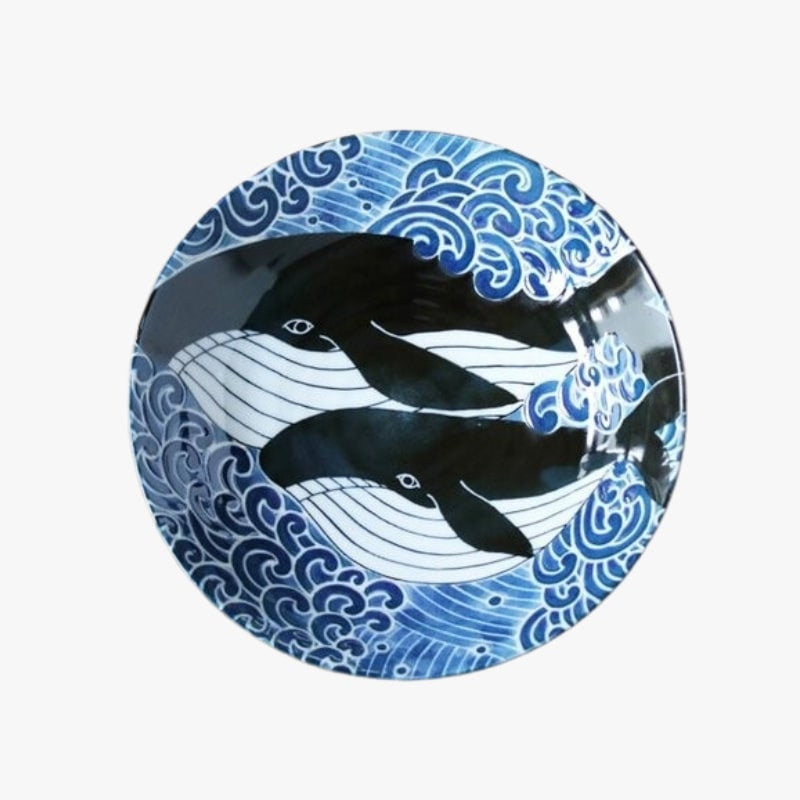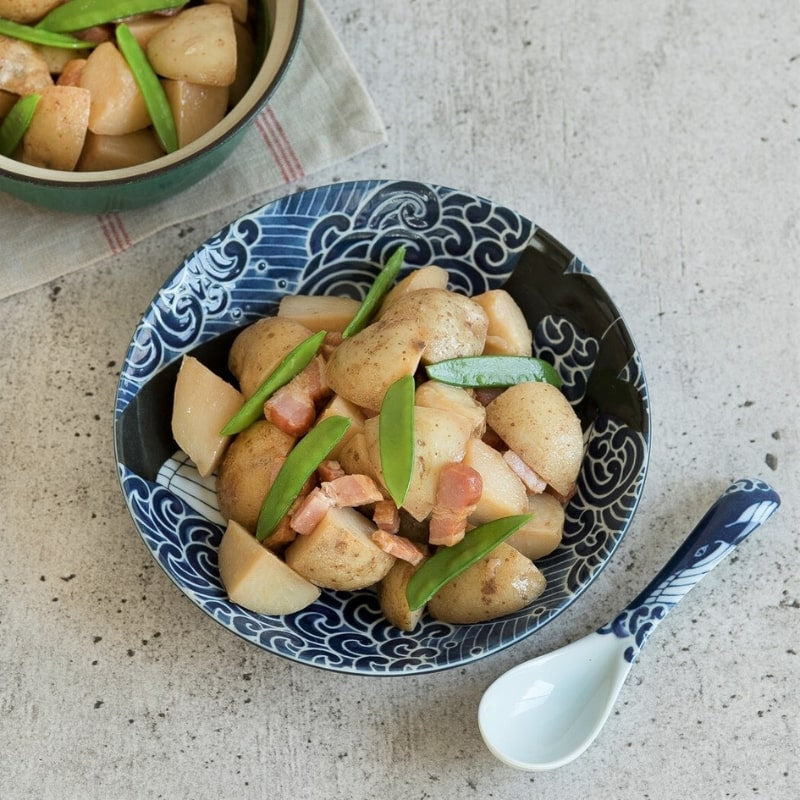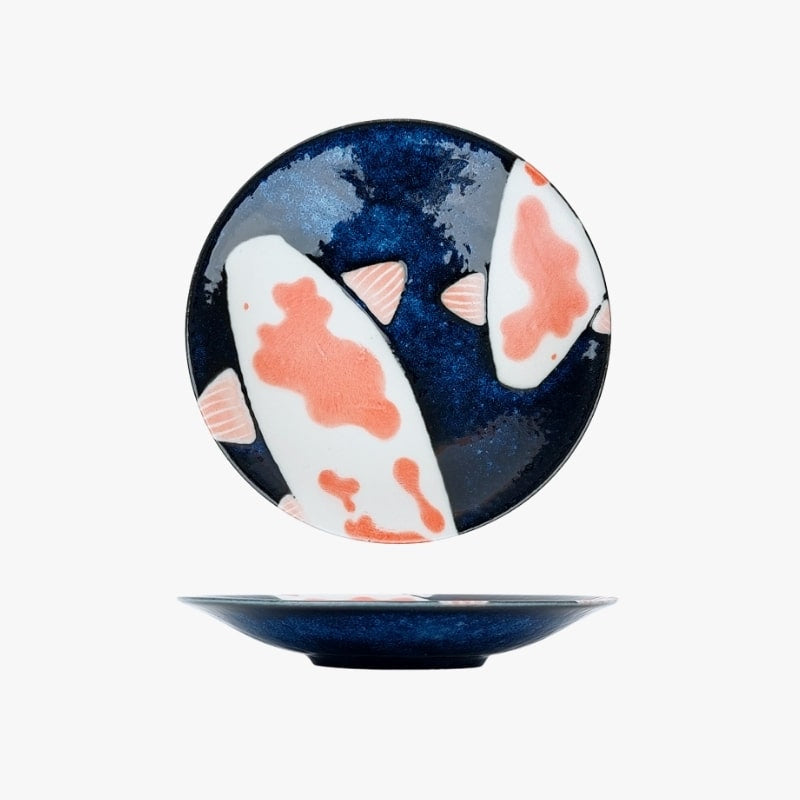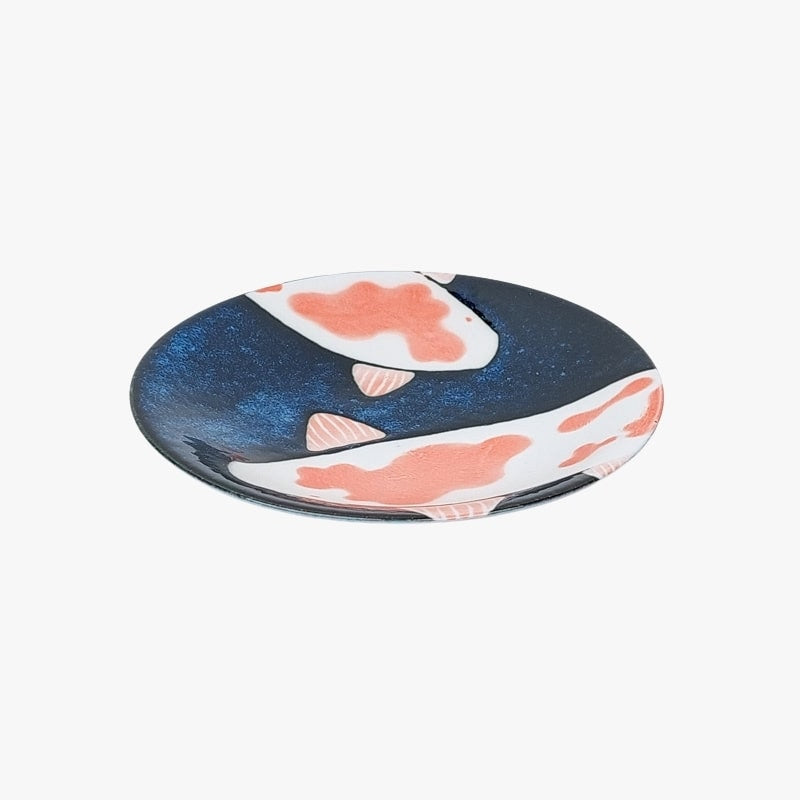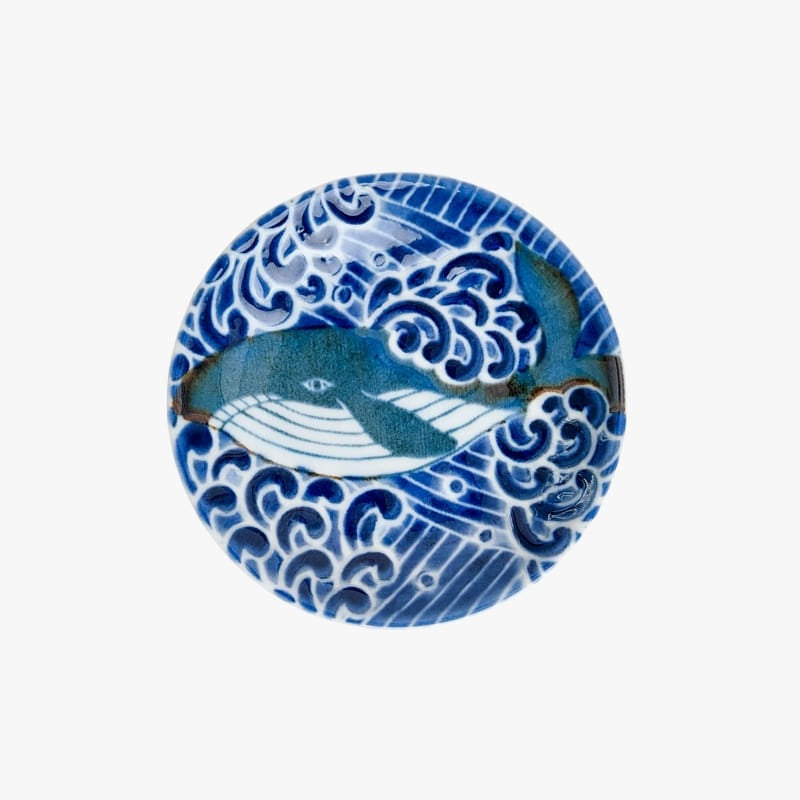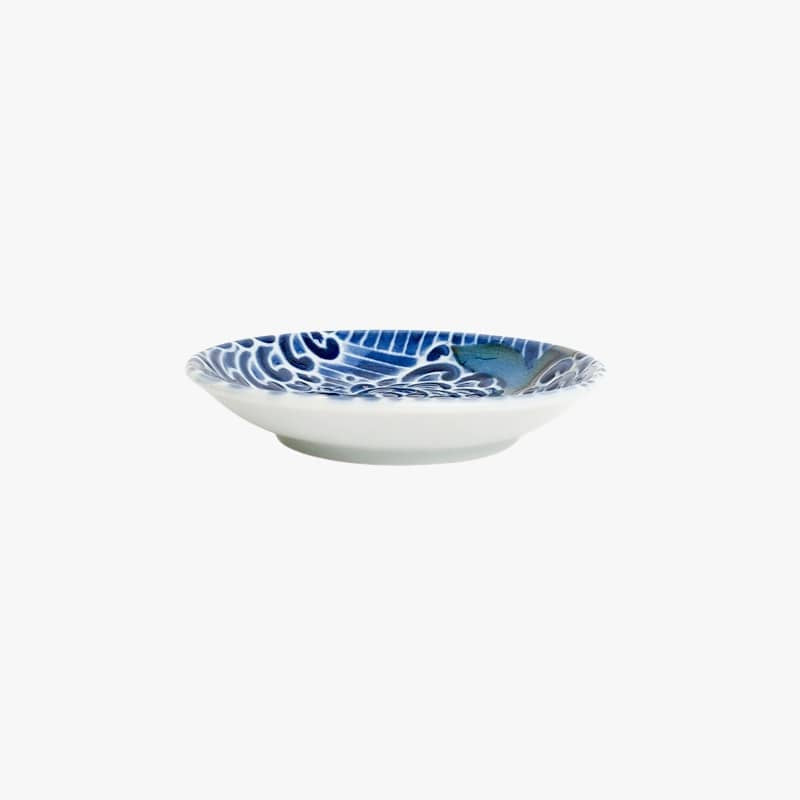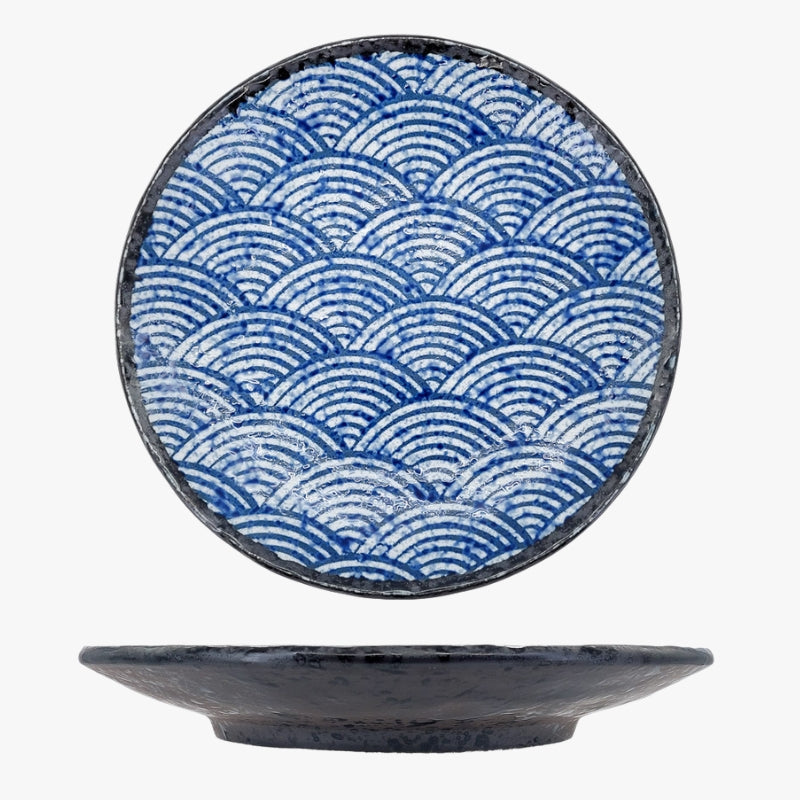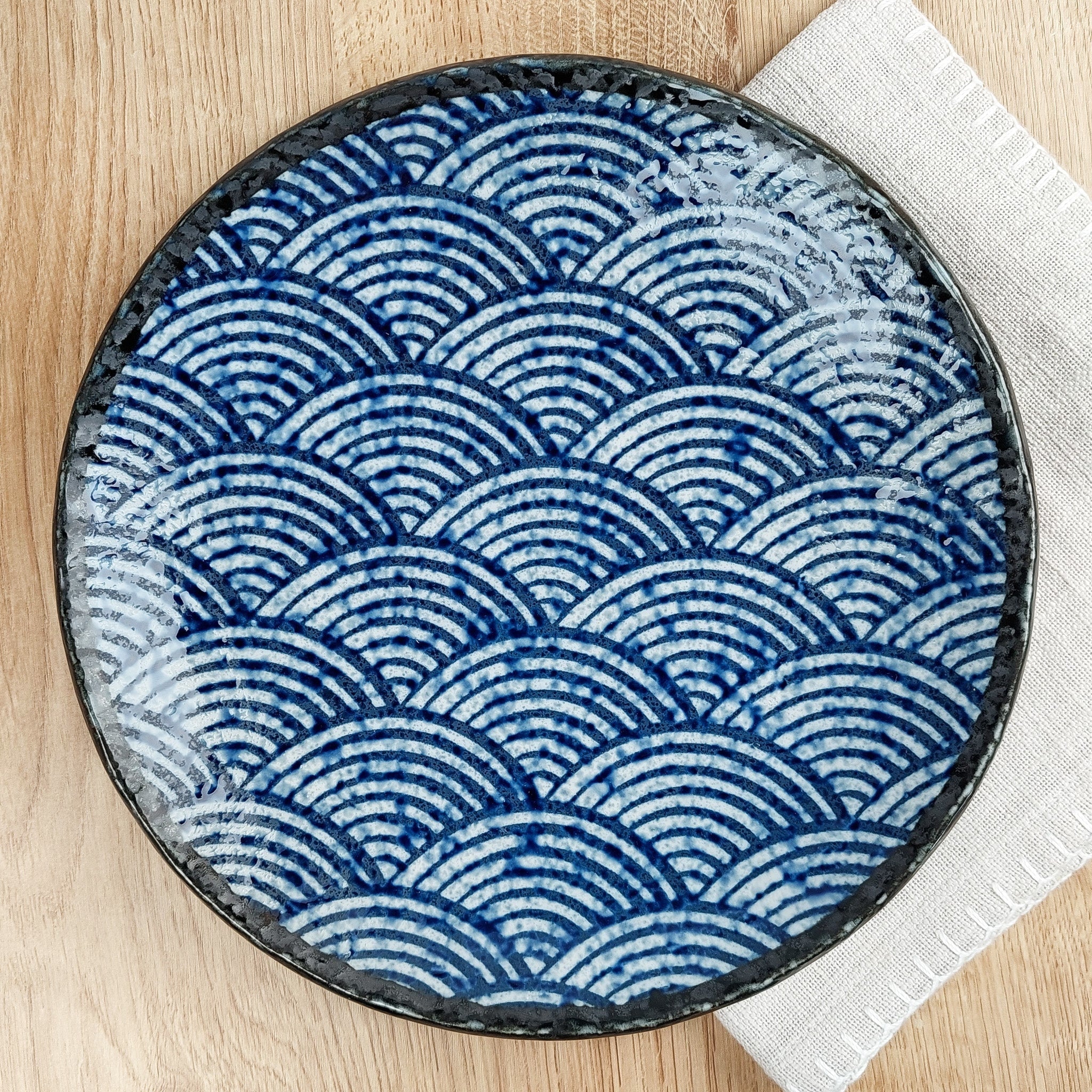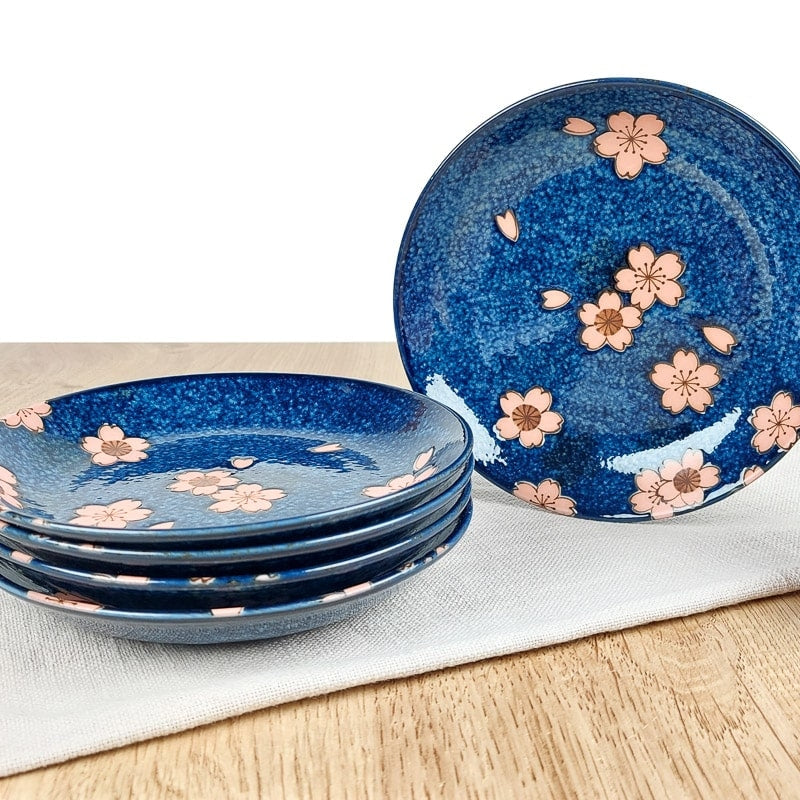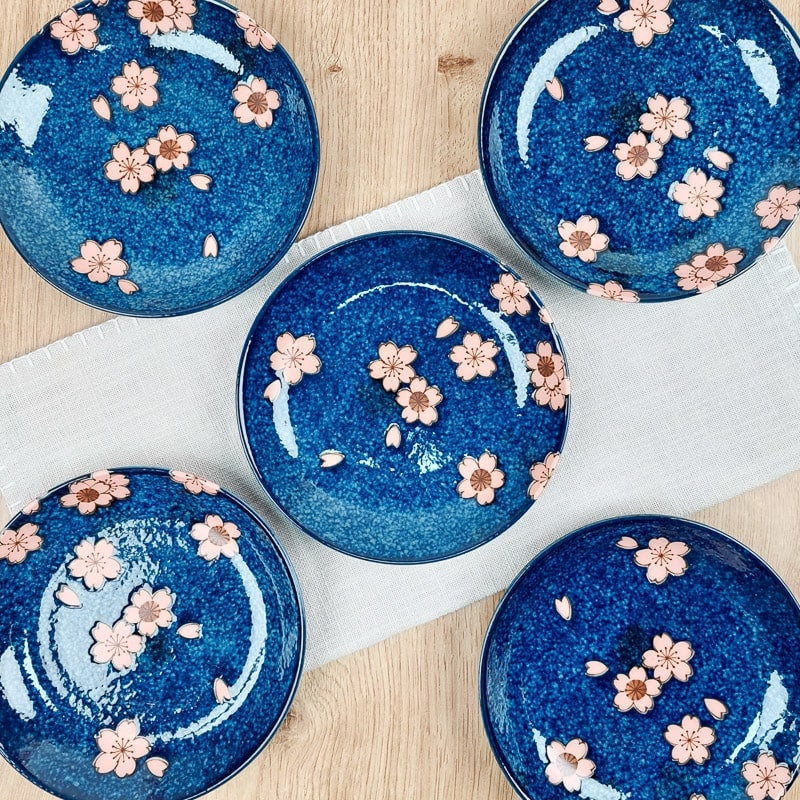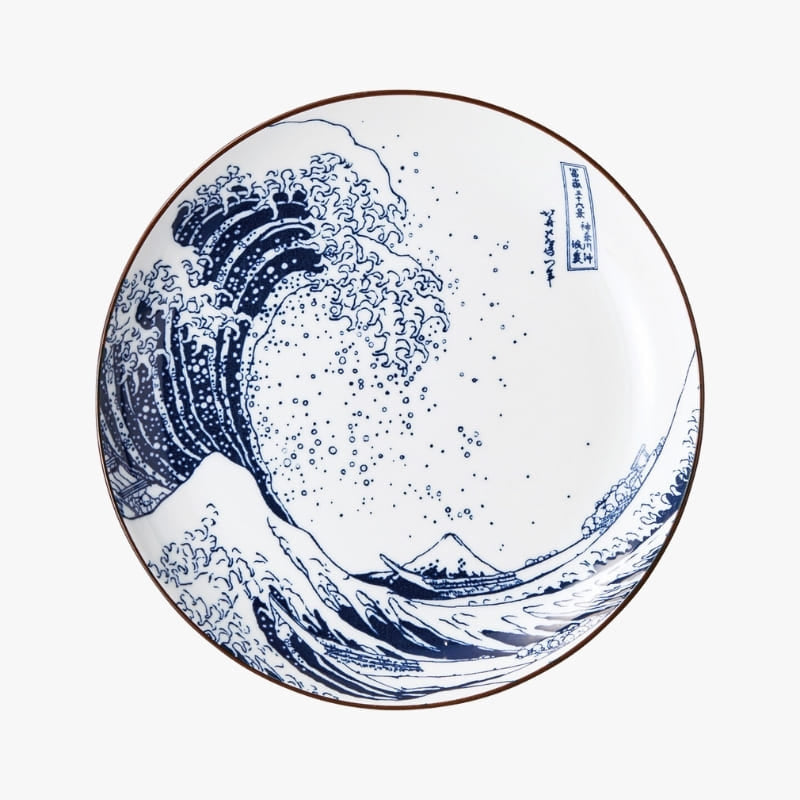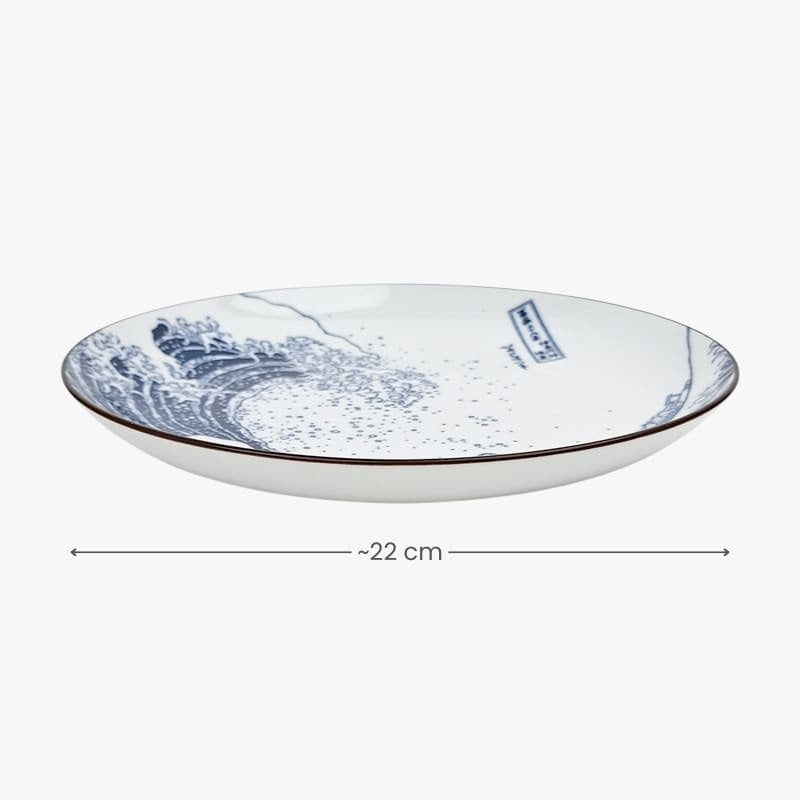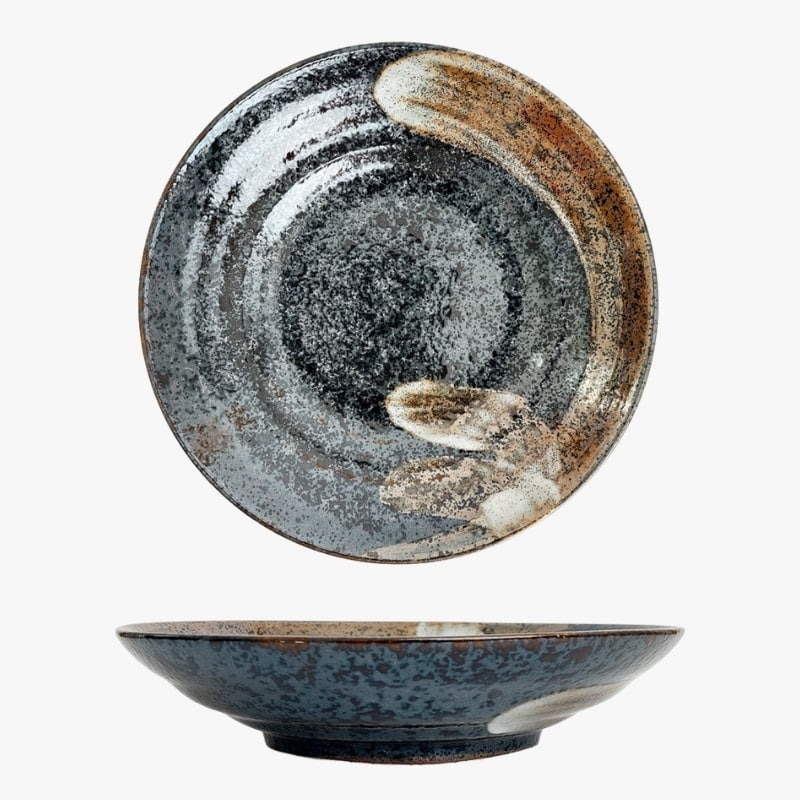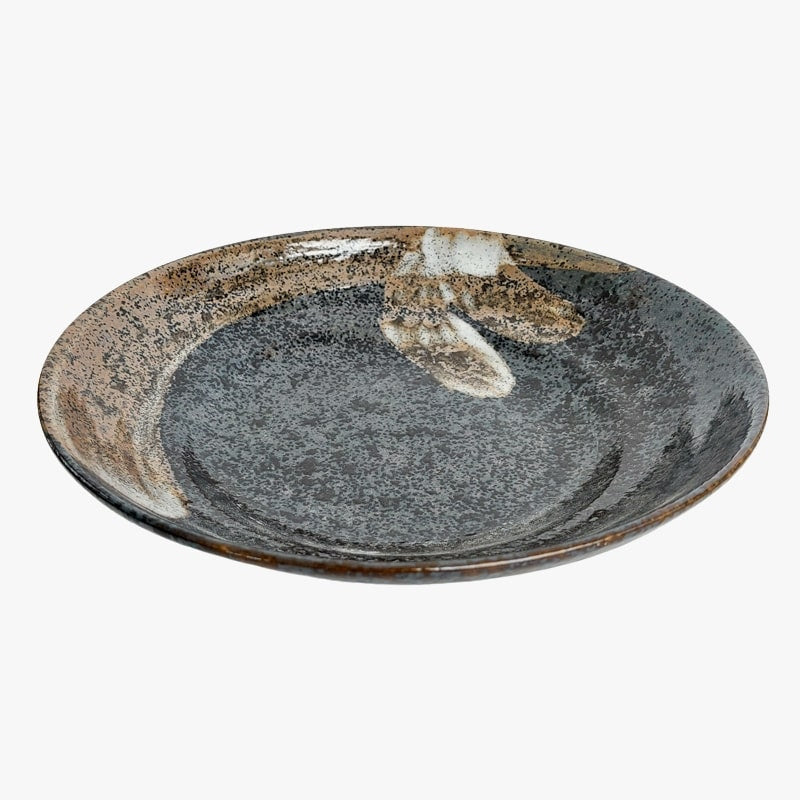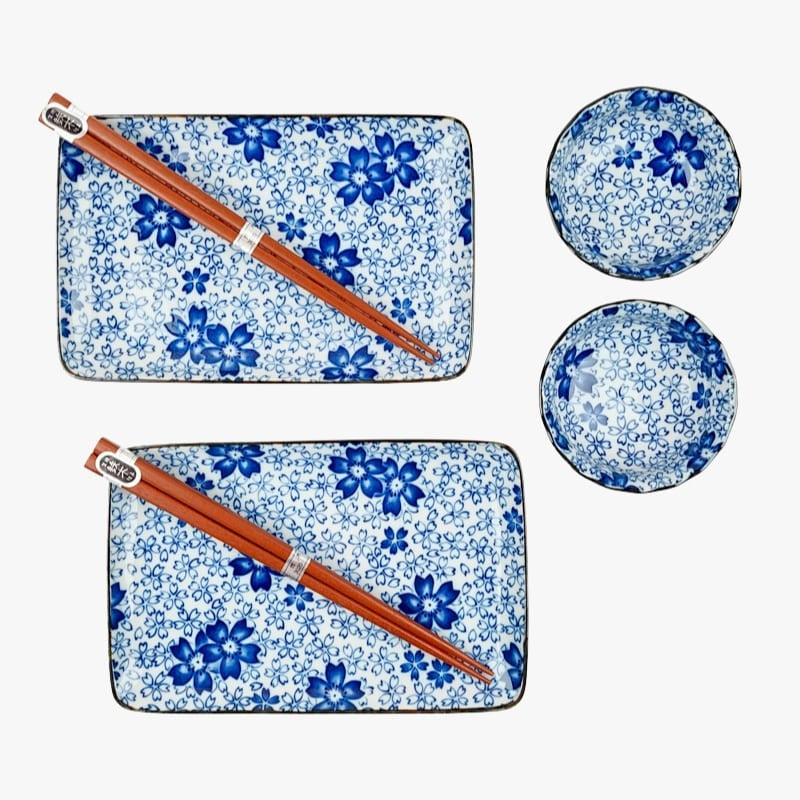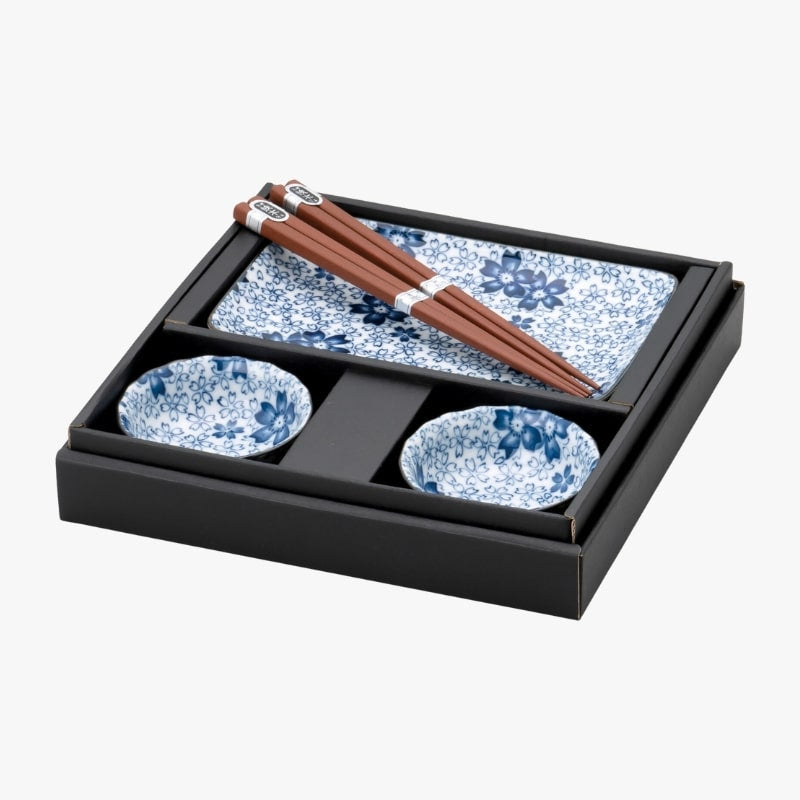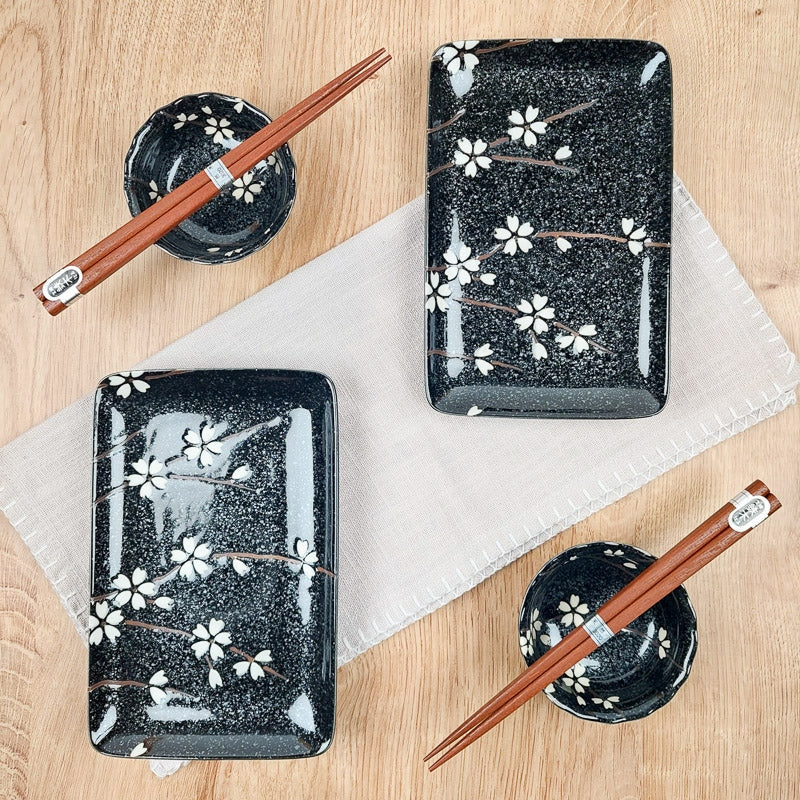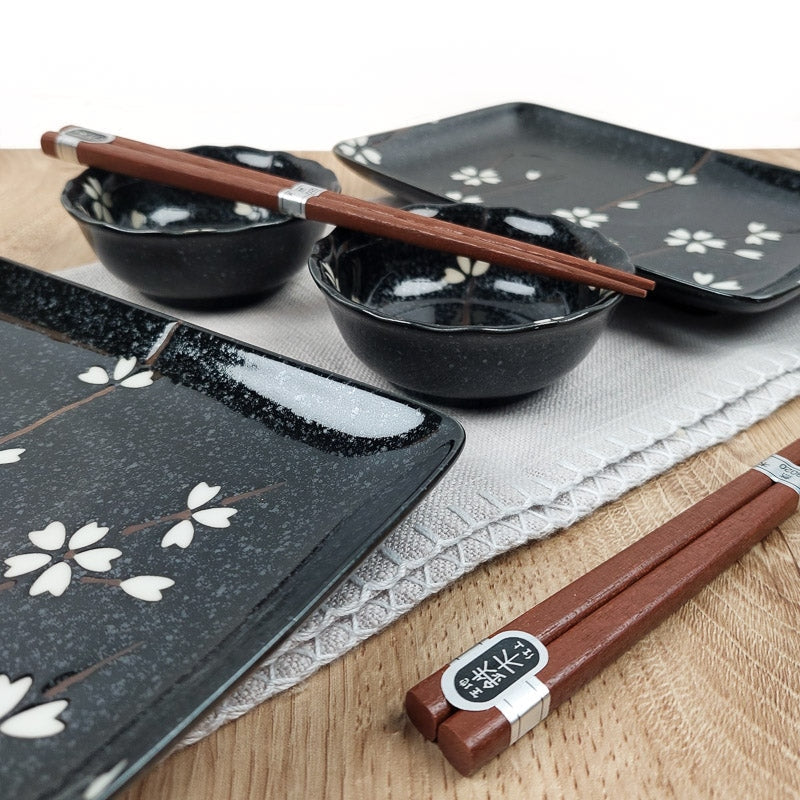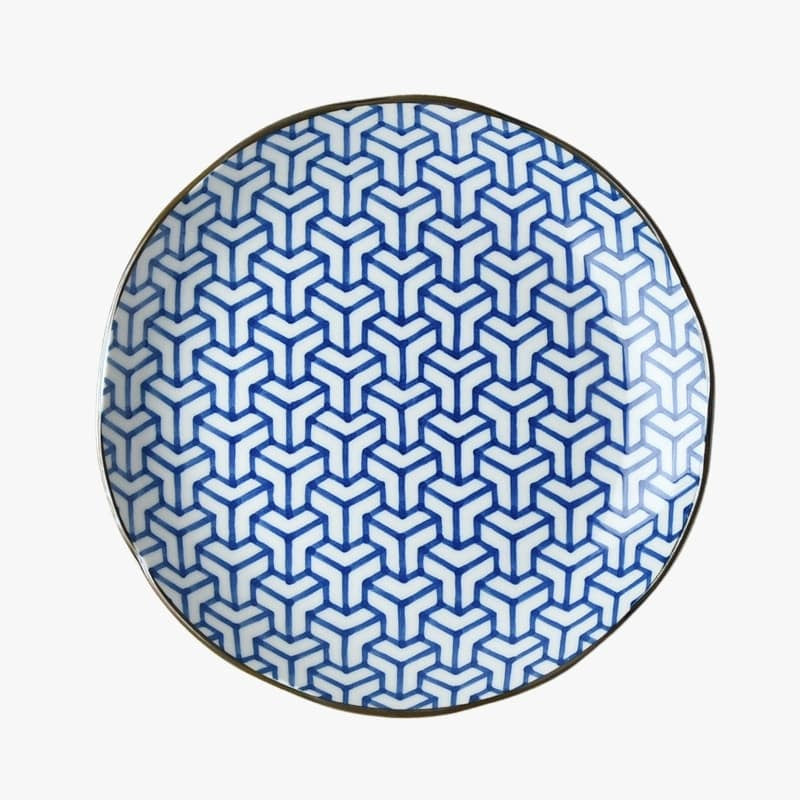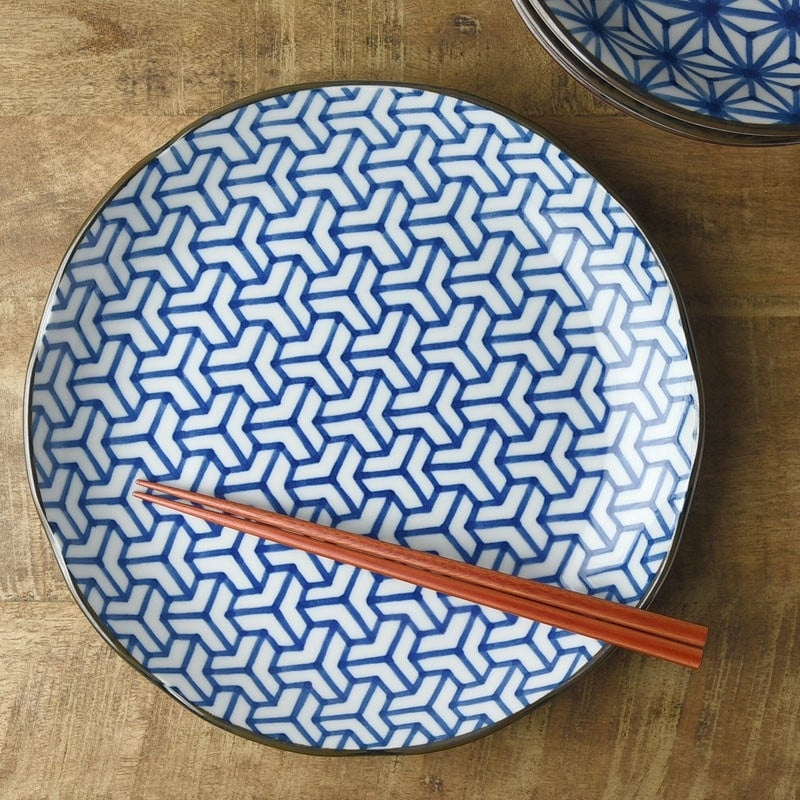The Japanese plates represent a veritable heritage of culture and craftsmanship. Made from refined materials such as ceramics, porcelain and Mino earthenware, these plates offer an authentic tasting experience. From versatile plates to rectangular platters for sushiand sashimi, each piece is designed with care and craftsmanship. Their soothing aesthetics and nature-inspired colors create a serene ambience at the table.
Japanese plates: the importance of presentation
In Japan, the presentation of food is a veritable art form. Japanese plates are carefully designed to highlight the colors and textures of the food. Their traditional patterns, such as seigaiha,asanoha or shippo, add a touch of sophistication to the table.
Japanese plates often have elegant, minimalist shapes, such as rectangular, round, square or ovalplates. They are made from a variety of high-quality materials, such as ceramics, porcelain and Mino earthenware. These materials enable us to design plates that are light, resistant and pleasant to the touch.
The colors used to make Japanese plates are soothing and inspired by nature. Shades of blue, white, green and brown are common, recalling Japanese landscapes and creating a calm and serene atmosphere at your table.
Japanese plates for every occasion
The difference in size between Japanese and Western plates is worth noting. In Japan, "normal" plates are often smaller than those found in Western countries. This is due to the practice of serving dishes in smaller portions in the center of the table, allowing diners to share several courses during a meal.
The special sushi plates and sashimi are designed to showcase these artistically prepared delicacies. They are generally longer and narrower than traditional plates, so that sushi and sashimi can be arranged elegantly.
Some Japanese plate sets may include several types of plate, bowls for soy sauce, pairs of chopsticks and sometimes even matching coasters. These sets of dishes are perfect for serving an authentic sushi meal at home.
Japanese plates are much more than just containers for food. They are objets d'art that fully participate in the culinary experience, highlighting flavors and inviting contemplation. When you use Japanese plates, you immerse yourself in the rich culture and refined aesthetics of Japan.

